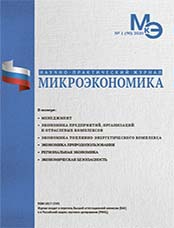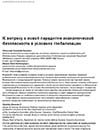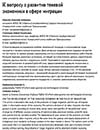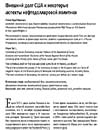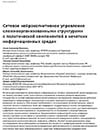To the question of a new economic security paradigm in the conditions of globalization
This article shows the main aspects that characterize global tendencies in economic security. The relationship of national economic security and international trade is shown. The issue of applying trade protection measures in order to ensure national economic security is touched. The influence of global and regional integration processes, as well as scientific and technological progress on ensuring national security is presented. The role of the trade status of each state didn’t go unnoticed. The new paradigm must take into account such a factor as the development of the global computer network “Internet”. An important element of a systemic nature in the new paradigm of economic security is the problem of limited resources and environmental pollution. An essential scientific result of the article is the identification and analysis of the impact of globalization processes on economic security.


